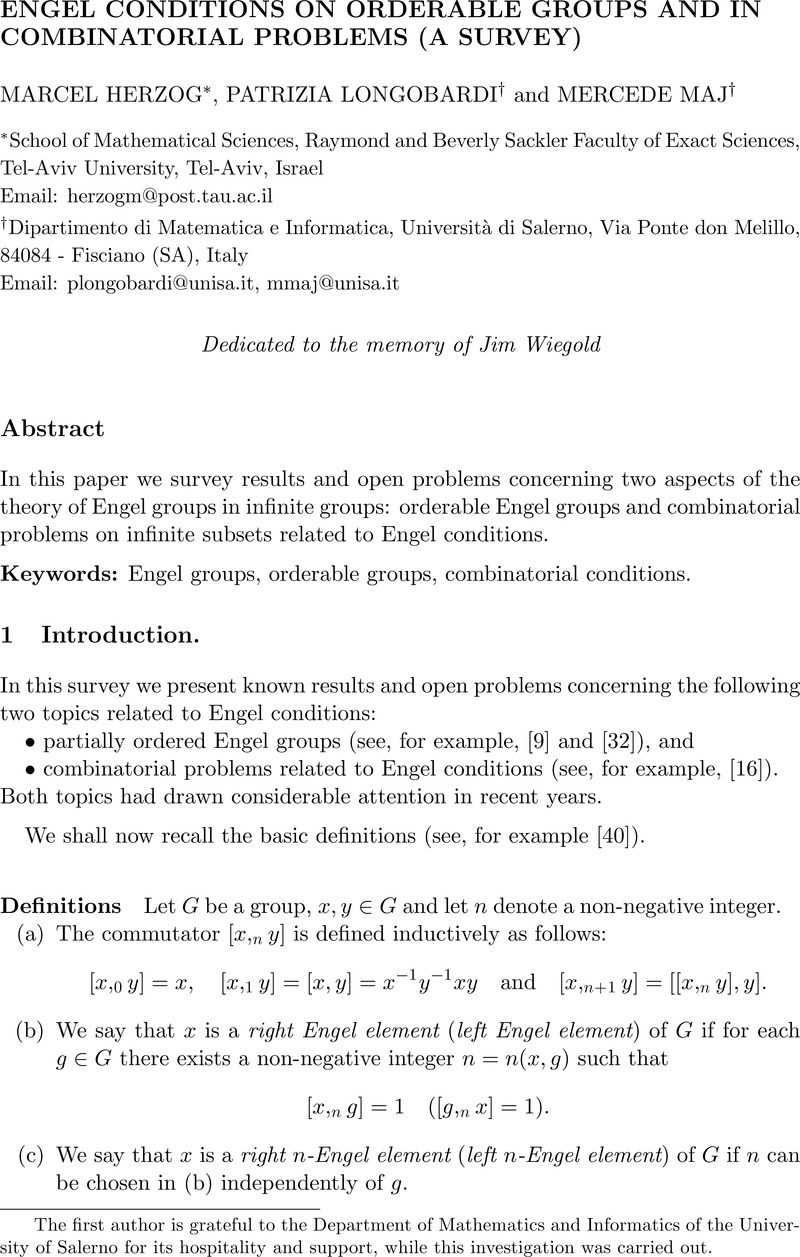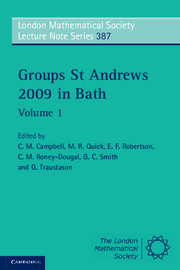Book contents
- Frontmatter
- Contents
- Introduction
- A speech in honour of John Cannon and Derek Holt
- Finite groups of Lie type and their representations
- Iterated monodromy groups
- Engel elements in groups
- Some classes of finite semigroups with kite-like egg-boxes of D-classes
- Structure of finite groups having few conjugacy class sizes
- Group theory in cryptography
- A survey of recent results in groups and orderings: word problems, embeddings and amalgamations
- A survey on the minimum genus and maximum order problems for bordered Klein surfaces
- On one-relator quotients of the modular group
- Miscellaneous results on supersolvable groups
- Automorphisms of products of finite groups
- A rational property of the irreducible characters of a finite group
- Automotives
- On n-abelian groups and their generalizations
- Computing with matrix groups over infinite fields
- Trends in infinite dimensional linear groups
- Engel conditions on orderable groups and in combinatorial problems (a survey)
- References
Engel conditions on orderable groups and in combinatorial problems (a survey)
Published online by Cambridge University Press: 05 July 2011
- Frontmatter
- Contents
- Introduction
- A speech in honour of John Cannon and Derek Holt
- Finite groups of Lie type and their representations
- Iterated monodromy groups
- Engel elements in groups
- Some classes of finite semigroups with kite-like egg-boxes of D-classes
- Structure of finite groups having few conjugacy class sizes
- Group theory in cryptography
- A survey of recent results in groups and orderings: word problems, embeddings and amalgamations
- A survey on the minimum genus and maximum order problems for bordered Klein surfaces
- On one-relator quotients of the modular group
- Miscellaneous results on supersolvable groups
- Automorphisms of products of finite groups
- A rational property of the irreducible characters of a finite group
- Automotives
- On n-abelian groups and their generalizations
- Computing with matrix groups over infinite fields
- Trends in infinite dimensional linear groups
- Engel conditions on orderable groups and in combinatorial problems (a survey)
- References
Summary

- Type
- Chapter
- Information
- Groups St Andrews 2009 in Bath , pp. 283 - 296Publisher: Cambridge University PressPrint publication year: 2011



